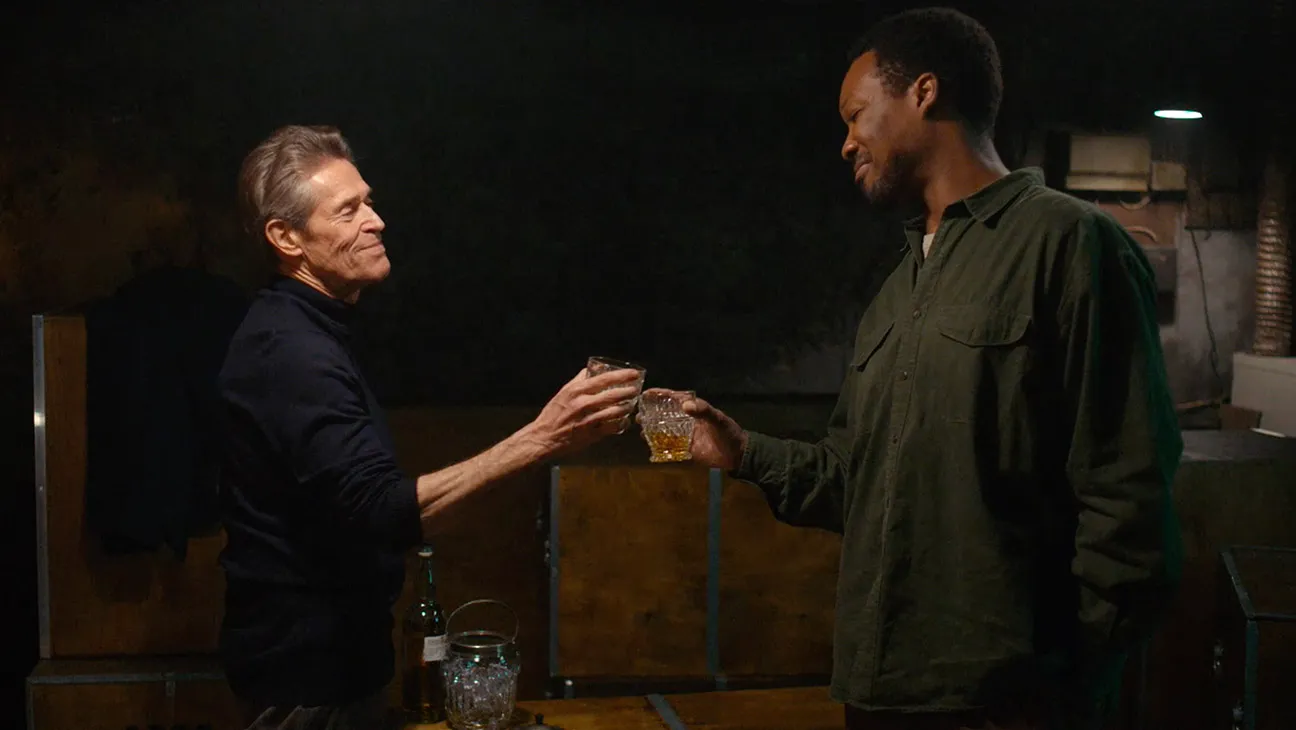The Man in My Basement
by George Wolf
You see Willem Dafoe is starring in a film called The Man in My Basement, and you suspect things could get freaky – in ways both hilarious and perverse. But if you’re at all familiar with Walter Mosley’s source novel, you know this basement business will deal in the bonds of history, the questions of philosophy and the responsibility of heritage.
The basement belongs to Charles Blakey (Corey Hawkins), an African American man in Sag Harbor whose life is slowly unraveling. With his parents deceased, Charles lives alone in his ancestral home, surrounded by artifacts he only values for possible sale.
Unemployed, Charles spends his days drinking, gambling and aimlessly drifting through life. With no motivation or prospects, Charles has little hope of saving the house from foreclosure, until Anniston Bennet (Dafoe) shows up on his door with an unusual offer.
If Bennet can rent the basement of the house, he’ll pay Charles one thousand dollars a day for 65 days. And he’ll pay in cash. What luck.
But of course, once Bennet moves in, Charles begins to discover the strings attached to the offer, and director Nadia Latif – adapting the screenplay with Mosley – zeroes in on the psychological battle downstairs.
Hawkins is impressive, with an understated approach that lends valuable authenticity to Charles’s gradual awakening. Through conversations with Bennet, and his growing friendship with a local curator (Anna Diop), Charles begins to the see the world – and his place in it – in an important new light.
Bennet’s unusual charm seems effortless for Dafoe. Is he angel or devil? Teacher or student? Prisoner or warden? From the minute Bennet’s offer is accepted, you know there will be consequences, and Dafoe has little problem upping the ante with a persuasive intensity.
Latif’s defiant final shot lands more securely than the attempts to paint the film as more of a danger-filled thriller than it really is. Charles’s nightmares seem more tailored to beefing up the trailer than the narrative, ultimately adding to a frustrating superficiality that dulls the edges of otherwise compelling themes.
The meaningful weight is found in the back and forth between Charles and Bennet. Hawkins and Dafoe flesh out both similarities and differences, and how each man is changed from the encounter. It is in these moments that the film finds its voice, and you end up wanting to push aside the overt symbolism, hoping to find a little more boundary pushing.



